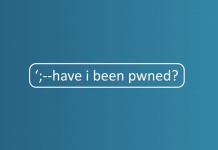

When the long-predicted storm finally hit us, it struck with so much destructive force that it caught even grizzled New Yorkers by surprise. The storm’s surge quickly overran our defenses, overwhelming all emergency responders, causing mayhem across an unprecedented swath of territory, and leaving millions of homes underwater in its wake.
I could be talking about Hurricane Sandy, but I’m not. I’m talking about the financial crisis of 2007 and 2008. Four years ago, the storm that crippled the world economy was similar to this week’s weather — without the physical peril and immediate impact being as obvious as the footage of property damage and displaced lives that we’re seeing in the wake of Sandy. But there was plenty of property damage. Credit markets seized. Companies like Lehman Brothers, Bear Stearns, Merrill Lynch and Wachovia — bedrock institutions of the global financial system — ran out of money. Regular people, justifiably panicked, started hoarding gold and canned goods. Interest in underground doomsday bunkers soared.
And although it is overtly political, as a consumer advocate I feel compelled to say something about Mitt Romney, since his candidacy is something America shouldn’t buy. On both the financial catastrophe and the storm, Governor Romney got it completely wrong.
Asked during a Republican primary debate on June 13, 2011, whether the Federal Emergency Management Administration (FEMA) should have its budget and responsibilities drastically cut, the governor said: “Absolutely. Every time you have an occasion to take something from the federal government and send it back to the states, that’s the right direction. And if you can go even further and send it back to the private sector, that’s even better.” Asked 14 times the day after the storm that left millions affected, Governor Romney (in traditional Romney fashion) stonewalled reporters and staged a canned food drive for the Red Cross even though that organization specifically asked people not to give canned goods — but rather money. Of course, a wealthy guy asking for money doesn’t have the same effect.
Romney even backed up this talk with a budget proposal that could include cutting FEMA’s budget by 20 to 40 percent.
Now, in the wake of Hurricane Sandy, Romney looks all wet. The idea that any single state could possibly coordinate an emergency response on the scale required by a natural disaster of this magnitude is ludicrous. Rarely at a loss for words, the Republican challenger is making quite an artful sport of dodging reporters’ FEMA-related questions. After almost 40 years of working for consumers, I would be remiss were I not to call him out. Who wants a product with no customer support?
This scion of the American auto industry, and its million-plus jobs, was the genius behind “Let Detroit Go Bankrupt.” His best idea for how to fix the failing mortgage market was to “Let it run its course and hit the bottom.” He throws canned goods at hurricanes and earthquakes. And this is the man we trust to protect Americans from the next wave of economic predators?
Romney is the avowed enemy of the Dodd-Frank Wall Financial Reform Act, a package of laws broadly intended to rein in Wall Street’s casino-like tendencies. It includes legislation to reign in predatory mortgages, create an open exchange for risky derivatives, and increase corporate accountability to shareholders.
He wants to “replace [it] with streamlined, modern regulatory framework.” But what does this actually mean? Romney said during the first presidential debate that he likes sections of the law of interest to big banks, like imposing leverage limits. But what about the sections that have a direct impact on consumers, like whether we can trust our bank not to lie about the terms of a mortgage or a credit card?
On these important issues, Romney is silent. The only reasonable conclusion is that these are the sections of Dodd-Frank that Romney is so eager to repeal. Doing so would leave millions of middle-class Americans vulnerable to the same type of schemes that caused the last economic disaster.
Or consider Romney’s flat-out rejection of the Consumer Financial Protection Bureau, which he has called “perhaps the most powerful and unaccountable bureaucracy in the history of our nation.” Forget the fact that he’s wrong, since the bureau, created by Dodd-Frank, is the only financial regulatory agency whose opinions can be vetoed by other agencies.
What’s more important here is that closing the nascent bureau would leave consumers unprotected and helpless in the path of the next financial hurricane. Just as FEMA conducts triage to identify which communities are worst hit by a natural disaster, evacuates people in harm’s way, and provides life-saving food and shelter for those worst affected, so too does the consumer bureau patrol the low-lying areas of the financial world, looking for dangerous products that could take advantage of the weak and unprepared, and seek meaningful compensation for consumers defrauded by financial schemes.
Besides, the bureau is just getting started. It hasn’t even proposed its rules yet for scandal-plagued industries like payday lenders or debt collectors, many of which operate like storm chasers, swooping in with predatory ferocity after a family’s economic collapse with promises of easy overnight fixes or threats of jail, only to trap people in deepening cycles of poverty.
Consumers need these protections as surely as they need a safe, dry place to take shelter from a storm. Romney’s plan to gut the bureau shows that he does not understand the enormity of the 2008 financial disaster. As with his nonchalance about states and private organizations assuming the overwhelming task of hurricane relief, his policy regarding the CFPB demonstrates a willingness to overlook the human consequences of decisions when they make sense on a spreadsheet.
Getting rid of FEMA is absurd, right up there with disbanding our nation’s military. Throwing out crucial reforms like the Dodd-Frank Act and the Consumer Financial Protection Bureau: equally ridiculous. We’ve learned from painful experience how to respond to disasters, both natural and man-made. Now is not the time to forget those lessons simply because one candidate feels compelled to apply laissez-faire deregulation to everything he touches, regardless of the millions of people he puts in harm’s way.
Meanwhile, depending on what happens Nov. 6, you might want to consider making your own preparations for the next financial maelstrom, because if Romney wins, we consumers will be on our own.
Originally posted at the Huffington Post.









